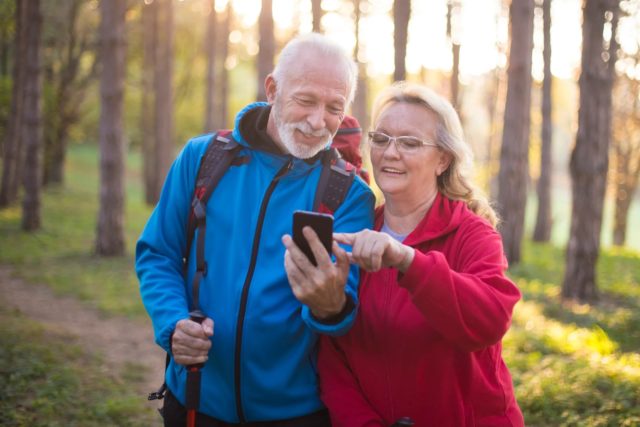Believe it or not, the classic mobile phone game Snake is widely considered to be the first mobile app created. The year was 1997, and Nokia was on the cusp of taking over the world with their almost indestructible phones that had a battery that could last for days.
While the sophistication of apps has certainly moved on from a pixelated snake, this clever little game represented a new age of technology. Being able to pick and choose the programs that worked for you, plus the ability to store it on a handheld device, was a game charger.
Fast forward to now, and there is an app for just about everything you can imagine. Flight trackers, house prices, plant identification, and even an app that lets you log where you have done a number 2 (Places I’ve Pooped) all exist.
The power of apps has been embraced by all manner of businesses and industries. Most big-name shops have dedicated apps to make it easier for customers to buy online. Cars have apps that can lock, unlock and even start the engine, in addition to showing detailed information about the car’s maintenance needs.
Table of Contents
Health and apps
The business of health is no exception. With the rise of wearable tech, the integration between devices and apps has become closely interlinked. An Apple Watch can monitor a user’s heart rate and blood oxygen level. While avid sports fans have been known to get notifications that their heart rate is higher than healthy during important games, this feature has alerted people to serious heart issues, and can even call emergency services if the watch detects no heartbeat or movement.
While it’s good to know that if you suddenly drop to the floor due to a cardiac incident, your watch can phone an ambulance, what other ways could apps benefit your health?
Digital health intelligence
Digital health intelligence is an ever-expanding market. The ability to collect and collate data from various sources speeds up the process of drug trials and new therapies exponentially. Health researchers and app developers can work together on a three-pronged approach to move research forward:
- By surveying the digital landscape for pain points with existing medications and therapies, companies know where to concentrate their efforts. Potential partners and participants can also be identified this way.
- Engage participants. Creating apps and/or wearable devices to track information is vital to understanding how a new treatment affects the participants. Not only is valuable data gathered, but a well-designed app can keep participants invested in the process by making it convenient or fun to continue with the program. An app can also allow a wider number of participants to take part.
- Speed up timelines. With so much real-time data being available from a wide pool of participants, the scientific findings can be collated quickly and are immediately digitized and ordered in a way that is helpful to the research.
Doctors on-demand apps
We all know that getting an appointment with your GP can be fraught with difficulties. Whether it is a case of calling at 9 am sharp and pleading your case to the receptionist to snag a coveted same-day appointment or simply resigning yourself to wait 3 weeks to talk about an issue that is bothering you now, it can be a frustrating process.
Enter telemedicine, providing the ability to access quality health care when and where you want it.
The original Doctors on Demand app was set up in the US in 2015. It allows users to connect with a doctor or healthcare professional almost immediately. Users enter information about symptoms or issues they want to discuss and are connected to a board-certified health care provider.
This approach has proven incredibly popular, and many apps now allow you to schedule an appointment with a healthcare professional either immediately or at a time that suits you. Information and notes from the person you see can also be shared with your usual GP or health team. While a virtual visit may not work for every condition, there is something to be said for being able to speak to an expert quickly. The reassurance it can offer a patient alone is invaluable.
The future
However, just imagine the possibility of a system that can understand the symptoms entered and not just connect you with a general practitioner but a specialist in whatever it believes to be the issue. No more waiting for referrals; you could go straight to an expert.
The merging of apps, data analysis, and potentially even AI brings exciting prospects to the field of health-related apps. Health care tailored to your medical history and the real-world data provided by your current vital signs could easily improve diagnoses and suggested treatment plans.
You also have to wonder how much general health would improve if people could see a doctor or nurse as soon as an issue arises instead of waiting for it to get really bad or for the next available appointment to come around. What does the future hold for health apps, and will we one day rely on them to save our lives?








